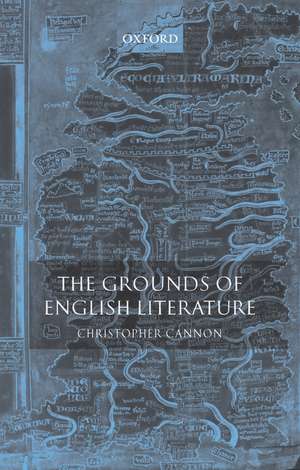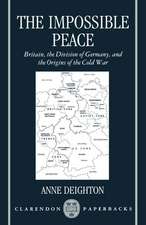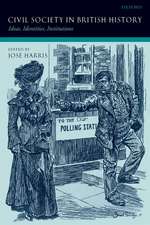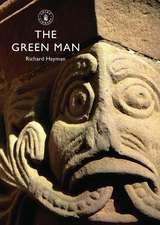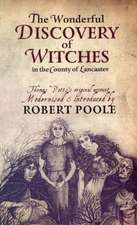The Grounds of English Literature
Autor Christopher Cannonen Limba Engleză Paperback – 28 noi 2007
| Toate formatele și edițiile | Preț | Express |
|---|---|---|
| Paperback (1) | 351.78 lei 31-37 zile | |
| OUP OXFORD – 28 noi 2007 | 351.78 lei 31-37 zile | |
| Hardback (1) | 815.98 lei 31-37 zile | |
| OUP OXFORD – 9 dec 2004 | 815.98 lei 31-37 zile |
Preț: 351.78 lei
Preț vechi: 385.40 lei
-9% Nou
Puncte Express: 528
Preț estimativ în valută:
67.33€ • 70.02$ • 56.34£
67.33€ • 70.02$ • 56.34£
Carte tipărită la comandă
Livrare economică 04-10 martie
Preluare comenzi: 021 569.72.76
Specificații
ISBN-13: 9780199230396
ISBN-10: 0199230390
Pagini: 250
Ilustrații: halftones
Dimensiuni: 137 x 215 x 15 mm
Greutate: 0.32 kg
Editura: OUP OXFORD
Colecția OUP Oxford
Locul publicării:Oxford, United Kingdom
ISBN-10: 0199230390
Pagini: 250
Ilustrații: halftones
Dimensiuni: 137 x 215 x 15 mm
Greutate: 0.32 kg
Editura: OUP OXFORD
Colecția OUP Oxford
Locul publicării:Oxford, United Kingdom
Recenzii
Review from previous edition This extraordinary book will have a transformative impact on the study of Middle English literary production in the centuries following the Norman Conquest. Its greatness lies in the sophistication and brilliance with which it generates entirely new questions - in a sense an entirely new field - out of a written milieu the author defines as the very "grounds of English literature", allowing the formal proclivities of the artefacts he examines to generate the theoretical, formalist, and historical lines of enquiry the book itself pursues. This is surely one of the most significant and groundbreaking books ever written on pre-Ricardian English literature.
Christopher Cannon's The Grounds of English Literature deals with the neglected texts of early Middle English literature in a straightforward, and also in a more subtle, sense. Most straightforwardly, it considers these early texts as a cluster of provisional points of departure for subsequent English literature. More subtly, it discovers a way of reading these texts as 'lone' objects, which are nevertheless 'grounded' in and by their material circumstances. Cannon develops this latter emphasis with notable originality. This is a splendid work, vividly couched in keen, and often elegant, prose.
No one working actively in Middle English studies knows as much about this period as Christopher Cannon. The Grounds of English Literature has all the virtues of his previous work: an intense engagement with the details of vocabulary, genre, and literary form; an aspiration to locate the analysis of those details in a broad theoretical framework; and a sensitivity to the ways in which the reception histories of medieval literary works (through editing, teaching, and criticism) have shaped our understanding of their meaning and canonicity.
Cannon's own readings are intellectually intense, bracing, and rich in their associations ... swaggeringly brilliant ... Cannon's book is an exciting and virtuoso performance. It is heartening, even at times breathtaking, to see such momentous conclusions come out of Early Middle English
A theoretically engaged critical monograph ... Christopher Cannon's closely packed book deserves a wide readership
Christopher Cannon's The Grounds of English Literature deals with the neglected texts of early Middle English literature in a straightforward, and also in a more subtle, sense. Most straightforwardly, it considers these early texts as a cluster of provisional points of departure for subsequent English literature. More subtly, it discovers a way of reading these texts as 'lone' objects, which are nevertheless 'grounded' in and by their material circumstances. Cannon develops this latter emphasis with notable originality. This is a splendid work, vividly couched in keen, and often elegant, prose.
No one working actively in Middle English studies knows as much about this period as Christopher Cannon. The Grounds of English Literature has all the virtues of his previous work: an intense engagement with the details of vocabulary, genre, and literary form; an aspiration to locate the analysis of those details in a broad theoretical framework; and a sensitivity to the ways in which the reception histories of medieval literary works (through editing, teaching, and criticism) have shaped our understanding of their meaning and canonicity.
Cannon's own readings are intellectually intense, bracing, and rich in their associations ... swaggeringly brilliant ... Cannon's book is an exciting and virtuoso performance. It is heartening, even at times breathtaking, to see such momentous conclusions come out of Early Middle English
A theoretically engaged critical monograph ... Christopher Cannon's closely packed book deserves a wide readership
